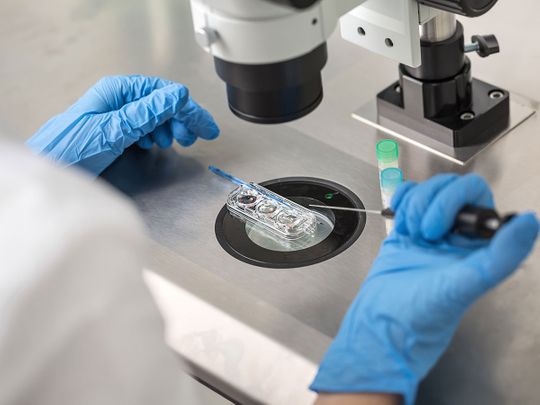
London: Britain’s polio-free status could be at risk for the first time in almost two decades after several samples of vaccine-derived poliovirus were found during routine London sewage testing.
Several closely related viruses were found in samples taken in north and east London between February and May. The findings suggest some spread between closely linked individuals and the virus has continued to evolve and is now classified as a vaccine-derived poliovirus type 2, the UK Health Security Agency said Wednesday.
Polio can on rare occasions cause serious illness, such as paralysis, in people are not fully vaccinated. No cases of polio or associated paralysis have been reported, according to the agency.
The health agency is working with other bodies, including the World Health Organization, to urgently investigate the matter to understand the extent of the transmission.
The UK’s last case of wild polio was in 1984 and the country was declared polio-free in 2003.
Wild polioviruses have been eradicated in most parts of the world except in Afghanistan and Pakistan, where they remain endemic. The vaccine-derived poliovirus - which originates from live attenuated polio viruses contained in oral polio vaccine - still trigger outbreaks, most recently in Ukraine and Israel.
“Vaccine-derived poliovirus is rare and the risk to the public overall is extremely low,” said Vanessa Saliba, consultant epidemiologist at the agency. “Most of the UK population will be protected from vaccination in childhood, but in some communities with low vaccine coverage, individuals may remain at risk.”
She urged people to ensure polio vaccines are up-to-date, especially parents of young children.
About 94% of two year-olds in the UK have been vaccinated against polioviruses, according to data from the National Health Service. London faces a wider challenge, however, as its infant vaccination rate is lagging behind the national level, with 89% of two year-olds immunized.
Prior sewage monitoring typically found one to three unrelated “vaccine-like” polioviruses each year but these were always one-time findings that were not detected again, the agency said. The previous detections occurred when an individual vaccinated overseas with the live oral polio vaccine returned or traveled to the UK and briefly left traces of the vaccine-like poliovirus in their feces.









